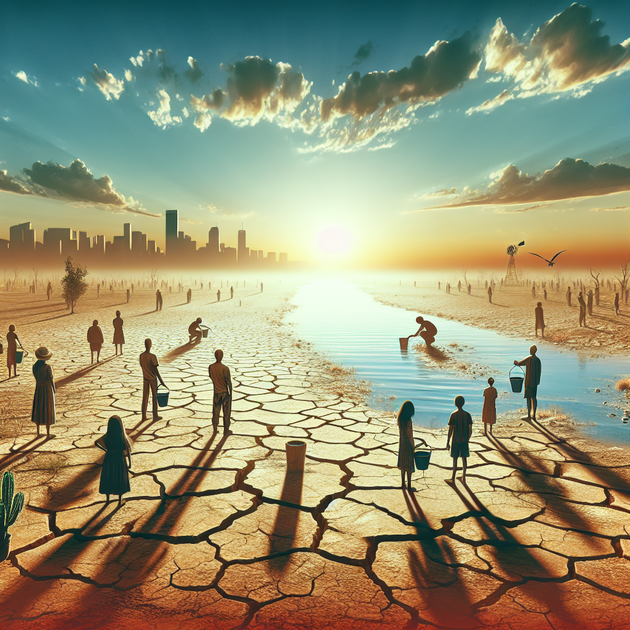Could Water Really Become More Precious Than Oil?
It might sound extreme at first glance—fresh water outpricing oil? But step back and look at the trends. Across the globe, fresh water scarcity is on the rise at a pace that surprises even experts. Underground aquifers are being depleted faster than nature can refill them. Major rivers like the Colorado in North America, the Indus in South Asia, and China’s Yangtze are all shrinking under the combined pressures of overuse and climate change.
While industries race ahead with innovations in AI or renewable energy, very few headlines focus on this critical resource. Yet experts warn that within just a few decades, access to clean fresh water—not oil—may define prosperity and security for entire nations.
Why Is Fresh Water Scarcity Accelerating?
There are several reasons why our supply of usable fresh water is dwindling:
- Overdrawn Aquifers: We’re pumping groundwater for farming and drinking faster than it can naturally recharge.
- Shrinking Rivers: Rivers like the Colorado, Indus, and Yangtze are shrinking due to overuse and changing rainfall patterns.
- Climate Change: Weather extremes are causing droughts in some regions and floods in others, making reliable supply harder to manage.
- Poor Infrastructure: Many countries still rely on outdated pipes and reservoirs built for last century’s climates.
According to a report from the World Resources Institute (WRI), one-quarter of humanity now faces extremely high levels of water stress each year. And as global temperatures keep rising, this number will only increase.
The Global Stakes of Water Scarcity
When a resource as essential as fresh water becomes rare, big changes follow. History has shown that conflicts over scarce resources can lead to unrest or even wars. In fact, some analysts suggest that “water wars” may be more likely than energy conflicts in coming decades if current trends continue.
Here’s what’s on the horizon if we don’t act:
- Migrations: People may be forced to leave areas where fresh water simply runs out.
- Agricultural Shocks: Food production relies heavily on irrigation—less reliable water means higher food prices.
- Ecosystem Collapse: Rivers and wetlands support biodiversity; their decline puts whole ecosystems at risk.
- Economic Disruption: Industries from manufacturing to tech need huge volumes of clean water.
Companies and countries already see what’s coming. Investments in technologies like desalination (turning seawater into drinkable water), advanced filtration systems, and efficient irrigation are quietly ramping up worldwide. For reference on desalination advances see this piece from National Geographic.
Anecdote: When Filling a Water Bottle Isn’t So Simple
Last night while playing chess at home, there was a quick break—just enough time to refill my reusable bottle from the kitchen tap. That simple act barely registered; it was routine. But for millions around the world today—and potentially billions tomorrow—that kind of easy access could become a luxury.
This isn’t just speculation or science fiction. It’s already reality in places like Cape Town, which famously nearly ran dry in 2018 (BBC News). Even developed regions such as California routinely face strict rationing during drought years.
The Path Forward: Innovation or Shortage?
So what can be done? Some solutions are already being deployed:
- Desalination Plants: Converting seawater into drinkable supplies—but they’re energy-intensive without green power sources.
- Smart Irrigation: Tech upgrades help farmers use less while growing more.
- Leak Detection: Modern sensors can spot and fix leaks before they waste millions of gallons.
- Bigger Investment: Governments must prioritize rebuilding aging infrastructure for long-term resilience.
Fresh water may not yet have futures markets trading its price like oil does—but some places are getting closer (CNBC). As demand rises and supply drops further due to population growth and warming climates, it’s not hard to see why experts believe its value will soon outpace anything we’ve seen before.
How might daily life change if every drop became precious? What would you do differently if refilling your bottle wasn’t guaranteed?

Leave a Reply